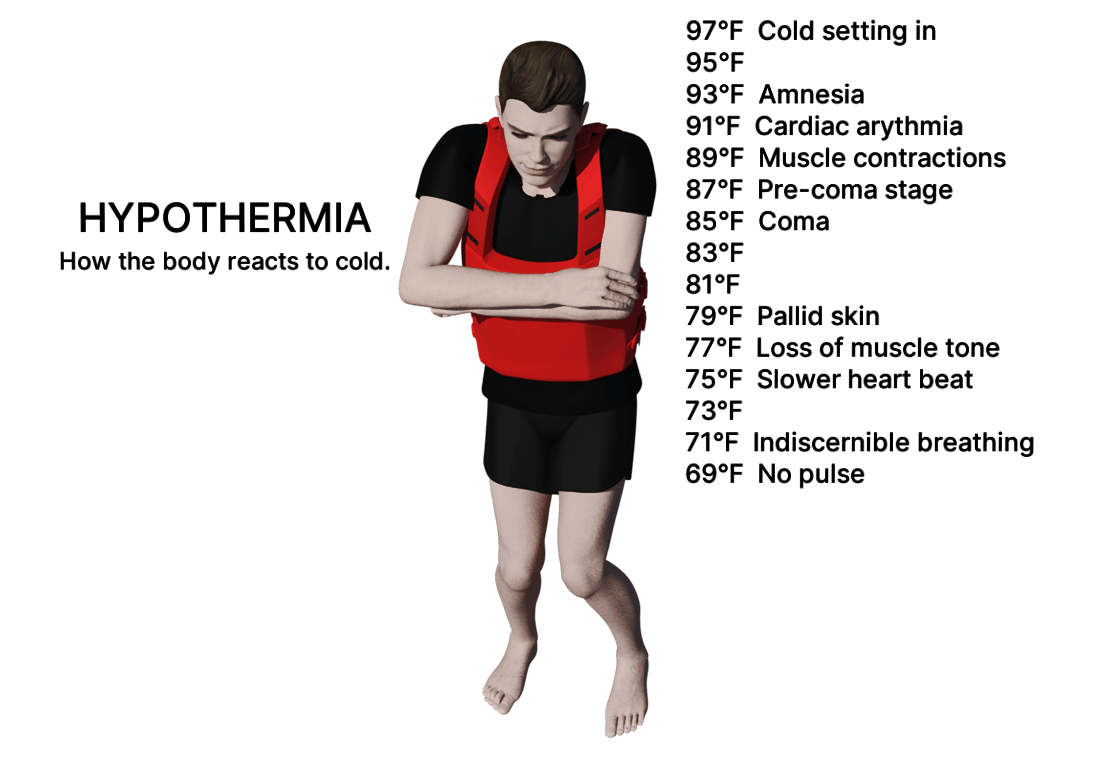Hypothermia - Definition and treatment

What's hypothermia?
Hypothermia is a condition that exists when the body’s temperature drops below ninety-five degrees. This can be caused by exposure to water or air. The loss of body heat results in loss of dexterity, loss of consciousness, and eventually loss of life.
Hypothermia is progressive - the body passes through several stages before an individual lapses into an unconscious state. The extent of a person’s hypothermia can be determined from the following:
- Mild Hypothermia - the person feels cold, has violent shivering and slurred speech.
- Medium Hypothermia - the person has a certain loss of muscle control, drowsiness, incoherence, stupor and exhaustion.
- Severe Hypothermia - the person collapses, may be unconscious and shows signs of respiratory distress and/or cardiac arrest probably leading to death.
The foremost objective for a person in the water is getting control over breathing and getting out of the water. To accomplish this and to limit heat loss, limit body movement. Don't swim unless you can reach a nearby boat or floating object. Swimming lowers your body temperature and even good swimmers can drown in cold water.
If you can pull yourself partially out of the water - do so. The more of your body that is out of the water (on top of an over-turned boat or anything that floats), the less heat you will lose. Especially keep your head out of the water if at all possible - this will lessen heat loss and increase survival time.
Treatment of hypothermia
Treatment of hypothermia should be accomplished with medical treatment. If medical treatment is not immediately available, treatment can be accomplished by gradually raising the body temperature back to normal.
- Remove the person from the source of cold and keep him/her warm and dry.
- Re-establishing body temperature can be as simple as sharing a sleeping bag or blanket with another individual.
- Applying warm moist towels to the individual’s neck, sides of chest and groin.
- Remove wet clothes as they inhibit heat retention.
- A warm bath could be used for mild to medium hypothermia, gradually increasing the temperature.
- Keep arms and legs out of the water and do not attempt to raise the body temperature too quickly.
- Do not massage the victim’s arms and legs. Massage will cause the circulatory system to take cold blood from the surface into the body’s core, resulting in further temperature drop.
- Do not give alcohol, which causes loss of body heat, or coffee and tea which are stimulants (and cause vasodilation) and may have the same effect as massage.